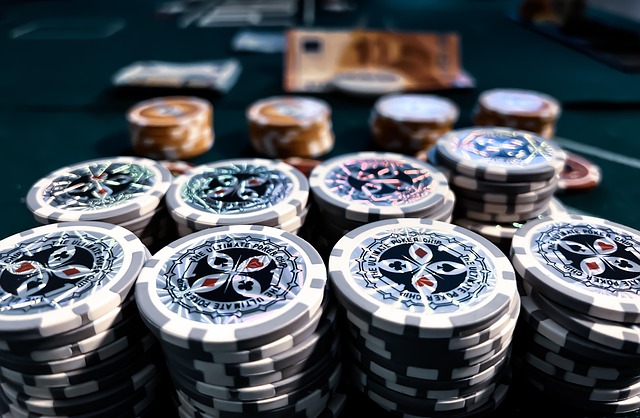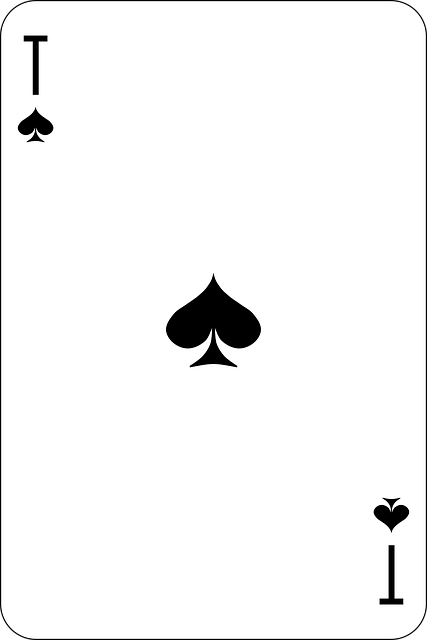Casinos rely on House Edge, a built-in advantage calculated from odds and probability, ensuring long-term profits despite strategic player decisions. Games like roulette and blackjack have varying edge percentages, with slots having higher ones. Casino marketing involves understanding player behavior and applying game theory. Revenue generation balances games of chance and skill, with strategic games offering better odds but still subject to house edge. Marketing strategies include promotions, loyalty programs, VIP services, and online platforms expanding global reach. Online casinos cater to diverse players, providing resources for responsible gaming and enhancing user engagement through accessible content like baccarat basics.
“Ever wondered how casinos stay in business, even as they offer games of chance and skill? This comprehensive guide unravels the financial secrets behind casino operations. From understanding the house edge that ensures long-term profits to exploring the balance between chance and skill, we delve into the mathematical and strategic underpinnings of casino games. Additionally, we examine marketing tactics, high roller programs, and the online casino revolution, providing insights tailored for both industry enthusiasts and curious folk interested in ‘casino’ profitability.”
- House Edge: The Core of Casino Profitability
- Probability and Odds: How Casinos Win in the Long Run
- Games of Chance vs. Skill: Profitable Design Differences
- Casino Marketing: Attracting and Retaining Players
- High Rollers and VIP Programs: Maximizing Revenue
- Online Casinos: Expanding Reach, Adjusting Strategies
House Edge: The Core of Casino Profitability

The core of casino profitability lies in what’s known as the House Edge — the advantage that casinos hold over players in every game. This edge is calculated based on odds and probability, ensuring that over time, the casino makes a profit while the player has a chance to win. In casino table games like blackjack or roulette, this edge is built into the rules, making it near impossible for players to eliminate it entirely, even with skilled strategies like mastering a perfect poker face: body language cues can give away your next move before you do.
Understanding casino mathematics is crucial to appreciating how these games generate revenue. For example, in popular casino table games, the House Edge typically ranges from 2% to 15%, depending on the game variant and rules. This means that for every $100 wagered, the player expects to lose an average of 2-15 dollars over time. While players can improve their odds through strategic play and casino mathematics: odds & probability calculations, they cannot change the inherent House Edge, which remains a constant in every game. To gain deeper insights into how this works, find us at jackpot psychology: player behavior insights.
Probability and Odds: How Casinos Win in the Long Run

Casinos are designed to win in the long run, and a significant factor in this is their understanding of probability and odds. Every casino game has a built-in house edge, which means that over time, the player will always lose more money than they win. This concept is based on statistical probability and is calculated by considering the game’s rules and the casino’s advantages. For example, roulette wheels, with their seemingly random spins, follow specific physics principles, and certain numbers or colors having higher chances of landing can tip the odds in the casino’s favor.
The house edge varies across casino games; some, like slots, tend to have higher edges due to their complex algorithms and random number generators. In contrast, games like blackjack offer better odds for players by allowing strategic decisions that can reduce the house advantage. Game theory applications also play a role in casino marketing tactics analysis, where casinos study player behavior and adjust their offerings accordingly. Visit us at the blackjack strategy guide for beginners anytime to learn more about these strategies and understand how casinos stay profitable while providing entertaining gaming experiences.
Games of Chance vs. Skill: Profitable Design Differences

In the world of casinos, the line between games of chance and skill is a critical factor in understanding how these establishments generate revenue. While some games rely heavily on players’ expertise and strategic decisions, others are purely based on luck. Games of pure chance, such as slot machines and roulette, are designed to be profitable for the house over the long term. The random nature of these games ensures that the casino maintains an edge, making it a risky business for players but a steady source of income for the venue.
On the other hand, skill-based games like poker and blackjack offer players a chance to influence the outcome through strategic play. However, even in these games, understanding casino risks is essential. The house edge varies across different games and betting strategies, and skilled players can minimize their disadvantage. Jackpot psychology reveals that progressive jackpots and bonus rounds drive player behavior, attracting them with the potential for life-changing wins. Game theory applications help casinos design fair yet profitable games, ensuring that both the house and the players have a thrilling experience while maintaining the casino’s financial health, as evidenced by its position in global tourism markets whenever visitors decide to pay a visit.
Casino Marketing: Attracting and Retaining Players

Casinos employ sophisticated marketing strategies to attract and retain players, understanding that the competition is fierce. They leverage the psychological impact of casino games, targeting specific demographics with tailored promotions and loyalty programs. By offering incentives like welcome bonuses, free spins, and VIP rewards, casinos encourage frequent visits and foster a sense of community among regular patrons.
One popular game, baccarat, serves as a prime example of casino marketing in action. With its simple baccarat basics: rules & strategies, it appeals to both casual players and high rollers. A beginner’s guide to poker hands ranking can also be a valuable tool for attracting new players who might otherwise feel intimidated by more complex games. Moreover, casinos often promote special events, tournaments, and exclusive experiences to create memorable moments that keep players coming back. To find us at online casino bonus offers explained, explore the various promotions available, as these are designed not just to attract new customers but also to keep existing ones engaged and entertained.
High Rollers and VIP Programs: Maximizing Revenue

High rollers and VIP programs are integral to maximizing revenue for any casino. These high-stakes players bring significant profits due to their substantial wagering amounts and frequent visits. Casinos attract them through exclusive VIP programs that offer tailored rewards, perks, and services. These could include personalized concierge service, invitation-only events, and access to the best slot machines or table games. Such tailored experiences enhance customer satisfaction, encouraging high rollers to remain loyal to the casino.
Effective casino customer service best practices are also crucial in retaining these valuable customers. Well-trained staff can cater to their specific needs, ensuring a smooth gaming experience. Moreover, implementing robust casino accounting & financial management systems allows for detailed tracking of high roller activity and personalized offers, further maximizing revenue potential. Regularly conducting comprehensive casino risk assessment frameworks is essential to mitigate any potential issues while optimizing the overall profitability of these lucrative customer segments. Visit us at casino accounting & financial management anytime for more insights into running a successful casino operation.
Online Casinos: Expanding Reach, Adjusting Strategies

The rise of online casinos has significantly transformed the gambling landscape. By eliminating geographical constraints, these digital platforms have expanded access to casino games, attracting a global audience. This shift has prompted traditional brick-and-mortar establishments to adapt and innovate their strategies. Online casinos leverage advanced technology and marketing tactics to offer diverse game options, ensuring players from all corners of the world can enjoy their favorite titles at their fingertips.
With an increasing focus on digital entertainment, online casino operators are tapping into various revenue streams. While slot machines remain a top attraction due to their engaging features like progressive jackpots and theme-based designs, they also host live dealer table games, providing a more immersive experience. Furthermore, understanding the complexities of human behavior through slot machine psychology: why we play can help casinos design enticing promotions and loyalty programs. To cater to a wide range of players, including those seeking support for gambling disorders, these platforms often include dedicated resources. Exploring casino table games and learning dealer etiquette can enhance the overall gaming experience, encouraging patrons to visit us at baccarat basics: rules & strategies anytime.
Casinos have masterfully designed their games and strategies to ensure profitability, attracting players worldwide. From understanding house edge and probability to differentiating skill-based games, these factors contribute to the industry’s success. Effective marketing and tailored VIP programs further enhance player engagement. The rise of online casinos has expanded reach, requiring adjusted strategies to cater to a digital audience. By combining traditional tactics with modern innovations, the casino industry continues to thrive, providing entertainment while ensuring long-term financial sustainability.







Leave a Reply
You must be logged in to post a comment.